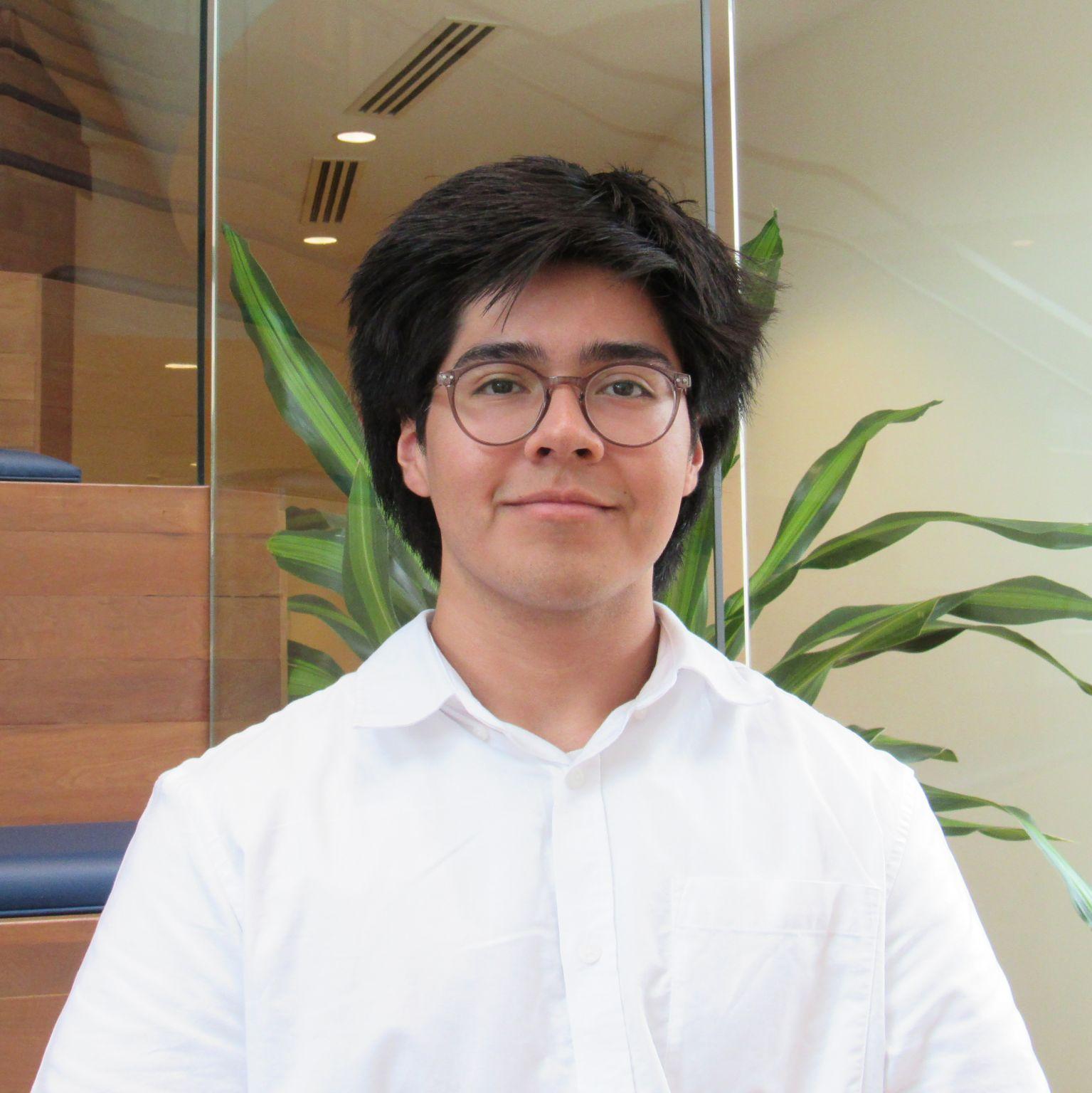
A University of Maryland (UMD) undergraduate student working in the Center for Bioinformatics and Computational Biology (CBCB) has been awarded a prestigious national scholarship for his excellence in research.
Luiz Mata Lopez, a sophomore double majoring in computer science and mathematics, has been named a 2025 Goldwater Scholar by the Barry Goldwater Scholarship and Excellence in Education Foundation.
He is one of four UMD students selected this year, joining 439 other scholarship recipients from 1,350 nominees nationwide. Each Goldwater Scholar receives a one- or two-year scholarship covering tuition, fees, books, and room and board up to $7,500 per year.
Mata Lopez, a first-generation college student, began his research journey at UMD with his participation in the BRIDGE (Bioinformatics Research in Data science for GEnomics) program in the summer of 2022, which is run by CBCB. During this program, he worked with Erin Molloy, an assistant professor of computer science, to computationally address the problem of estimating the evolutionary histories of many species. Specifically, he worked to speed up the performance of an existing software package to improve usability for biologists.
In fall 2023 he officially transferred to UMD from Montgomery College, where he was directly admitted to the university’s competitive computer science program.
After transferring to UMD, Mata Lopez rejoined Molloy’s research group to develop methods for rapidly reconstructing tumor evolution. He conducted a preliminary study highlighting the limitations of traditional approaches to cancer data and began developing several algorithms to address large-scale genome losses, a key evolutionary process involving the deletion of significant portions of a genome.
Molloy, who also has an appointment in the University of Maryland Institute for Advanced Computer Studies (UMIACS), describes Mata Lopez as “extremely talented.”
“In our group meetings, he regularly presents his own algorithmic ideas at the whiteboard and responds to questions on the fly—skills typically honed during the transition from undergraduate to graduate studies,” she says. “He is also deeply passionate about STEM research and has presented at Montgomery College and other forums to inspire fellow undergraduates to get involved.”
Mata Lopez’s passion for research extends beyond UMD. In the summer of 2023, he interned at the National Institutes of Health’s National Library of Medicine, where he worked on a project using nanopore sequencing to investigate the role of mobile DNA elements in cancer development. The following summer, he interned at the Broad Institute of MIT and Harvard, contributing to a dilated cardiomyopathy drug discovery pipeline. He merged imaging datasets from CRISPR and known responsive drug screens and analyzed them to identify gene edits that have similar effects as the drugs.
He is also deeply involved in STEM outreach, having served as a STEM ambassador at Montgomery College. Mata Lopez has received numerous accolades, including the Jack Kent Cooke Undergraduate Transfer Scholarship and the Frederick Douglass Scholarship from UMD.
His passion for education led him to create educational content with students nationwide to introduce biological sciences majors to bioinformatics software development.
Mata Lopez plans to pursue a Ph.D. in computer science, specializing in computational biology and statistical methods to better understand the origins of genetic disorders.
“I aim to address the genetic origins of diseases that have long mystified clinicians,” he says. “Recent computational advancements have enabled biomedical data analysis at an incredibly large scale and have led to a better understanding of disease mechanisms and rapid drug development.”
—This story was adapted from an article that appeared in Maryland Today written by Abby Robinson
